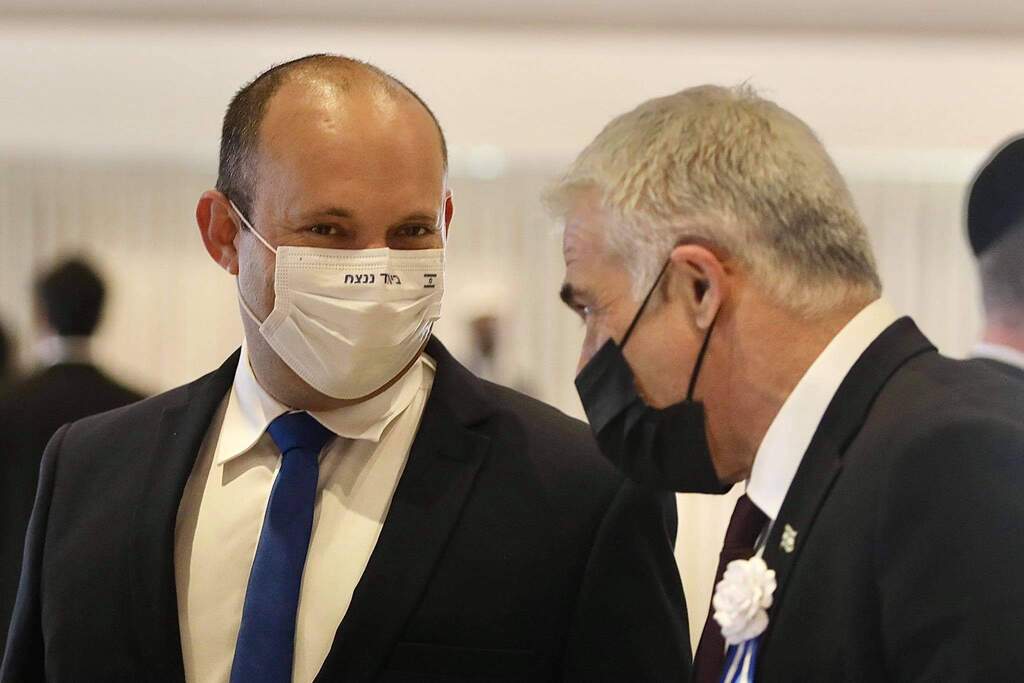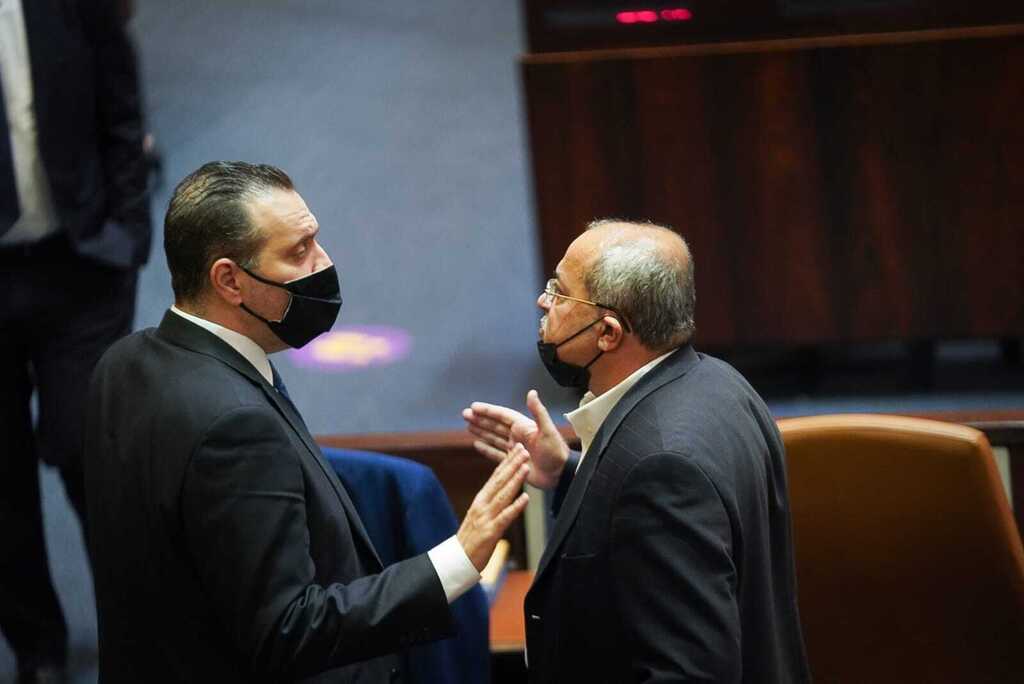Getting your Trinity Audio player ready...
The proposal voiced by several right-wing parties over the past days calling for the reintroduction of a direct vote for the prime minister, which Benjamin Netanyahu voiced his support for on Tuesday, faces two main hurdles.
The first is a constitutional one by changing Israel's form of government in the midst of a political crisis, while the second is the fact that such a bill will require a 61-MK majority to pass.
4 View gallery


Prime Minister Benjamin Netanyahu speaking to reporters in Jerusalem on Tuesday
(Photo: Flash 90)
As of now, it is unclear whether Netanyahu and his allies will be able to muster such a majority, since even if Naftali Bennett's far-right Yamina party does vote for the proposal, the premier only has 59 MKs on his side.
No one firmly in the anti-Netanyahu bloc has shown any support for the bill.
"This is not a direct vote, but a bypass to keep wasting time at the expense of the public," said Yesh Atid head Yair Lapid.
Mansour Abbas, the head of the Islamist Ra'am party, has not yet made his position on this clear. But he did vote Monday to remove Likud control of the powerful Arrangements Committee, which until a new government is formed has the authority over what legislation is presented and over the formation of the parliamentary committees.
4 View gallery


Ra'am leader Mansour Abbas speaking to his parliamentary faction in the Knesset
(Photo: Amit Shabi)
Even if the proposal to directly elect a prime minister does pass into law, it is almost certain that petitions will immediately be filed against it to the High Court of Justice.
This is on the grounds that it is unconstitutional to change the form of government while a caretaker administration is in place, while the members of the Knesset were elected by proportional representation.
"It is likely that there is room here for the High Court to intervene in accordance with the doctrine of an unconstitutional constitutional amendment," says Dr. Amir Fox, a researcher at the Israel Democracy Institute.
"This is a violation of the will of the electorate, which voted for the parties on the understanding that the existing system would be used to form a coalition government. Now the voter could find their vote retroactively diluted through a new election procedure."
4 View gallery


Yamina head Naftali Bennett, left, and Yesh Atid leader Yair Lapid at the inauguration of the new Knesset earlier this month
(Photo: GPO)
Legal experts, however, are not sure whether the court will intervene in a decision made by a 61-MK majority, considering the existing tensions between the judiciary and the legislative.
On Tuesday, Netanyahu reiterated his support for direct elections for prime minister, claiming that he no longer needs the deliberately noncommittal Ra'am to form a government.
Netanyahu also attacked Bennett, following his party's support for a proposal by the opposition over the allocation of deputy Knesset speaker positions.
He denounced his former ally as "a leftist" who could only regain his right-wing credentials by backing the vote on a prime minister.
4 View gallery


Likud MK Miki Zohar and Joint List MK Ahmad Tibi speaking in Knesset on Monday
(Photo: The Knesset)
Meanwhile, Likud MK Miki Zohar, who heads the Arrangements Committee while Netanyahu has been tasked with forming a government, refuses to convene the panel.
So for the next few weeks at least, Knesset is essentially paralyzed - unable to advance legislation or populate the vital parliamentary committees such as defense and finance.
The issue will come to a head soon, however, as if Netanyahu is indeed unable to cobble together a coalition, the task will be handed elsewhere.
Should that happen, the proposal will likely be scrapped as the prime minister will no longer have a crony calling the legislative shots.

